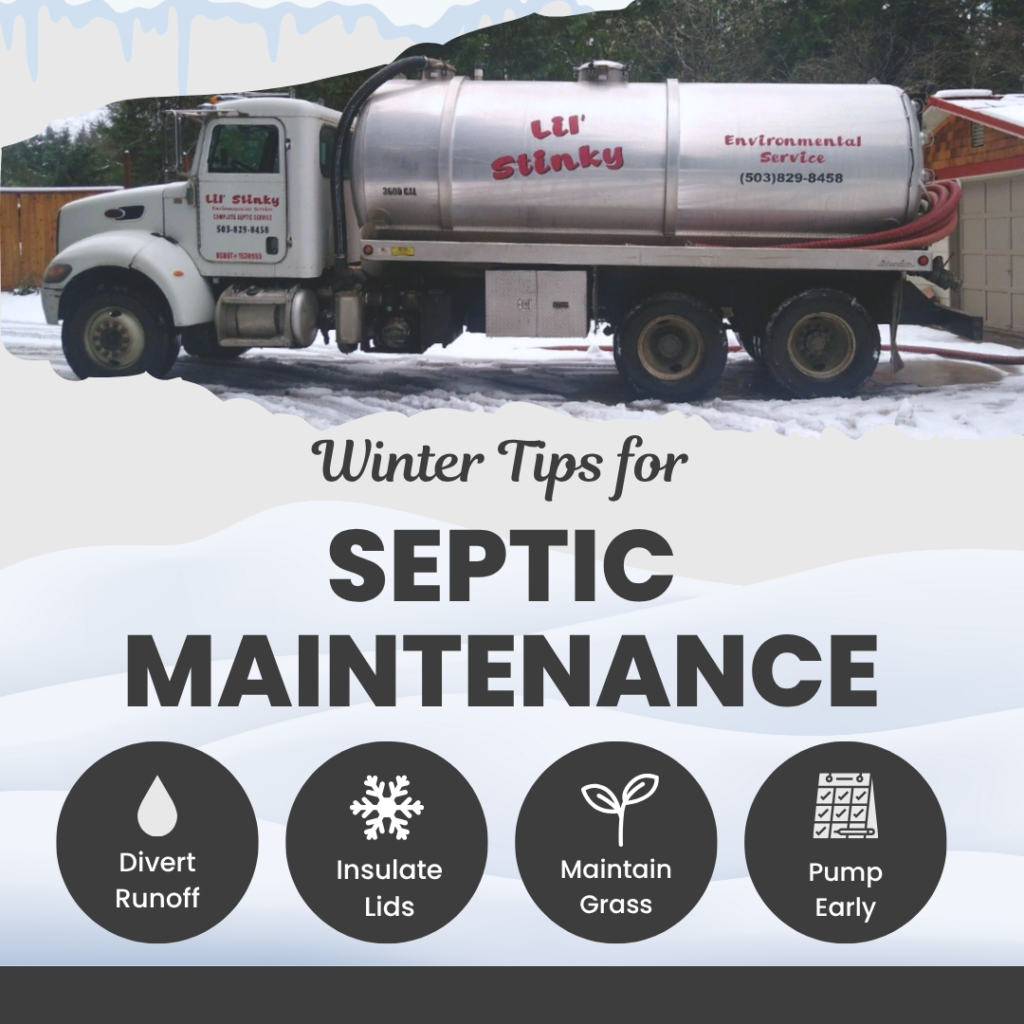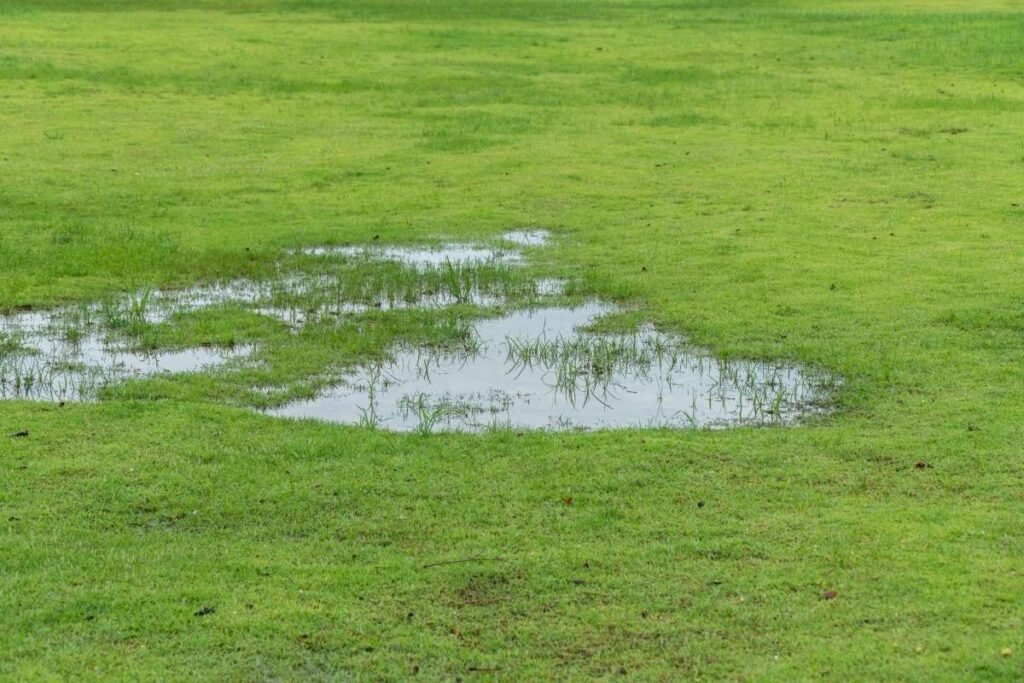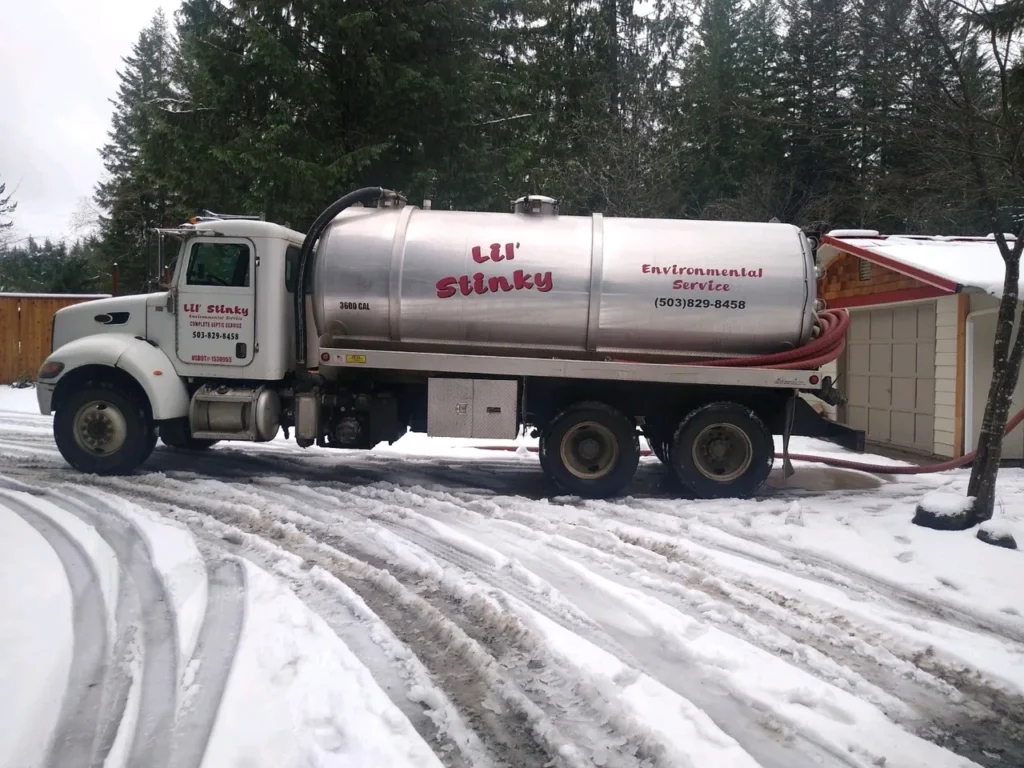
How Winter Weather Affects Your Septic System
(and How to Protect It)
Oregon winters bring heavy rain, cold nights, and soggy ground — all of which can put extra strain on your septic system. Here’s what happens below the surface and how to keep things running smoothly all season long.
💦 1. Saturated Drain Fields
When constant rain soaks the soil, your drain field can’t absorb wastewater as quickly. That can cause gurgling drains or backups inside the house.
👉 Tip: Spread out water use and fix leaky fixtures to avoid overload.
🌧️ 2. Rising Water Tables
Clay-heavy Oregon soil tends to hold water. When the water table rises, it can slow down or even reverse drainage from your septic tank.
👉 Tip: Make sure gutters and downspouts direct runoff away from your drain field.


❄️ 3. Cold Snaps & Freezing Components
While most of the Portland metro doesn’t freeze solid, short cold spells can still cause trouble. Shallow or poorly insulated lines, tank risers, or inspection ports can freeze — slowing treatment and risking damage.
👉 Tip:
Keep lids and risers sealed tight
Use mulch, leaves, or straw as light insulation over exposed areas
Keep the area in use — regular water flow helps prevent freezing
🌿 4. Vegetation & Ground Cover
Grass helps absorb rain and provides a bit of insulation. Bare soil can lead to pooling and frost penetration.
👉 Tip: Maintain a healthy grass cover year-round and avoid disturbing the soil during wet months.
🧰 5. Be Winter-Ready Before the Storm
Pump your tank before the rainy season
Fix leaks or drippy faucets
Check lids and risers for cracks or leaks
Mark your access points before the ground gets soft or icy
Even in the wettest months, your septic system keeps working — but a little preparation makes a big difference.
🚛 Lil’ Stinky Environmental Services keeps Portland-area tanks happy through rain, frost, and everything in between.
📍Serving Clackamas County & the Portland Metro year-round.
🌐 LilStinkyEnvironmental.com | @lilstinkyseptic

